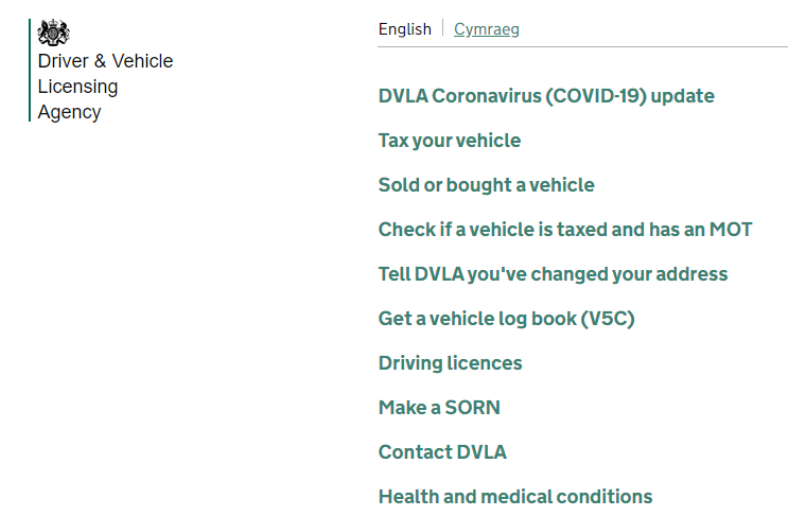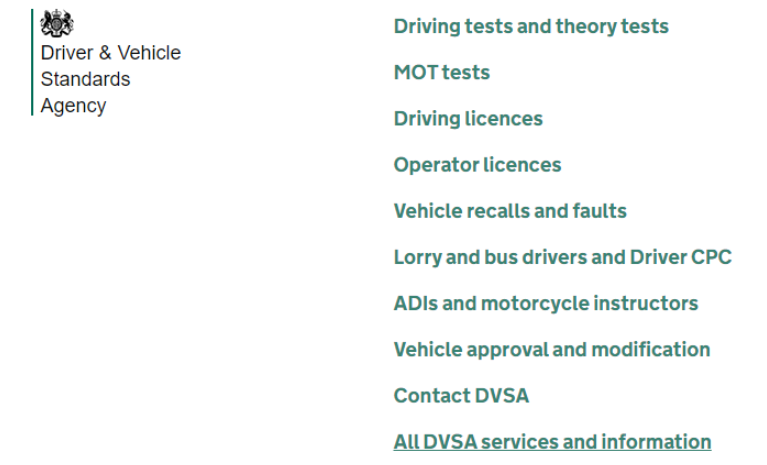C1.8 DVLA and DVSA¶
DVLA | DVSA | |
Full Name | Driver and Vehicle Licensing Agency | Driver and Vehicle Standards Agency |
Function | Administrative Body | Standards and Safety Enforcement Body |
Analogy | Similar to China's "Vehicle Management Office" (车管所) | A combination similar to China's "Vehicle Management Exam Department" (车管所考试科), "Vehicle Inspection Station" (车辆检测站), and "Transport Regulation Bureau" (运输监管局) |
Main Responsibilities | • Issue and manage driving licences | • Conduct theory and practical driving tests |
Primary Clientele | All general drivers and vehicle owners | Learner drivers, professional drivers, driving instructors, vehicle testing organisations |
Service Examples | • Apply for your first provisional licence | • Book and take theory/practical tests |
Simple Summary | Manages "who you are" and "who owns the vehicle" (Responsible for identity, ownership, and taxation) | Manages "how well you drive" and "if your vehicle is safe" (Responsible for standards, safety, and competence) |
DVSA (Driver and Vehicle Standards Agency)
The DVSA primarily conducts driving tests, approves people to become driving instructors and MOT testers, conducts tests to ensure lorries and buses are safe to drive, performs roadside checks on drivers and vehicles, and monitors vehicle recalls. It employs approximately 4,600 people across Great Britain, including: Driving Examiners, Vehicle Standards Assessors, Vehicle Examiners, Traffic Commissioners, Customer Service Agents, Registration and Licensing Officers, Digital Service and Technology specialists, and Corporate Services professionals (e.g., in communications, finance, and HR).

The DVSA is responsible for:
Conducting theory and practical driving tests for those wishing to drive cars, motorcycles, lorries, buses, coaches, and specialist vehicles.
Approving people to become driving instructors and motorcycle trainers, and ensuring they provide high-quality training.
Approving people to become MOT testers, approving the centres where they work, and testing lorries, buses, and coaches.
Conducting roadside checks on commercial drivers to ensure they follow safety rules and that vehicles are safe to drive.
Monitoring recalls for cars, parts, and accessories to ensure manufacturers fix problems quickly.
Approving training courses for qualified drivers, such as the Driver Certificate of Professional Competence (CPC) for lorry, bus, and coach drivers, and drink-drive rehabilitation courses.
Supporting the UK and Northern Ireland Traffic Commissioners in licensing and overseeing companies that operate lorries, buses, and coaches, and registering local bus services.

In summary: The DVLA deals with licensing, such as issuing driving licences and vehicle registrations, whereas the DVSA deals with standards, such as conducting driving tests and vehicle inspections.